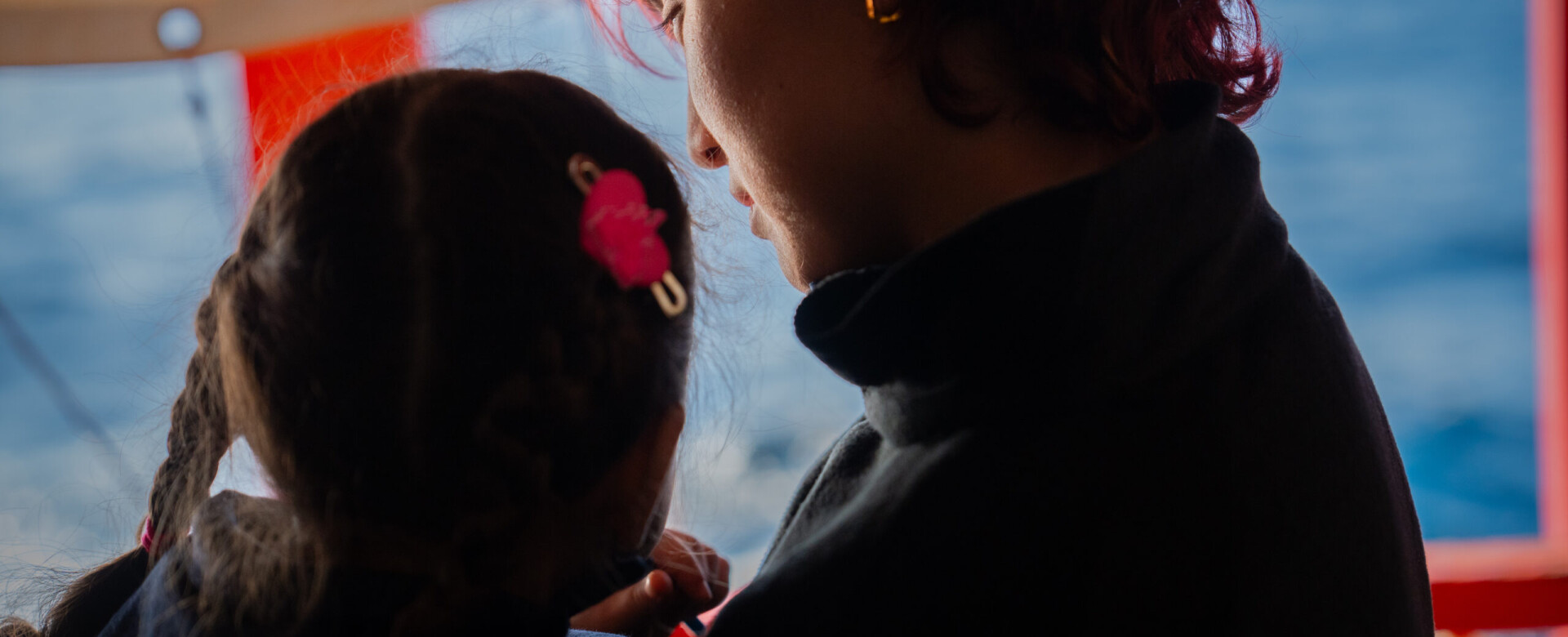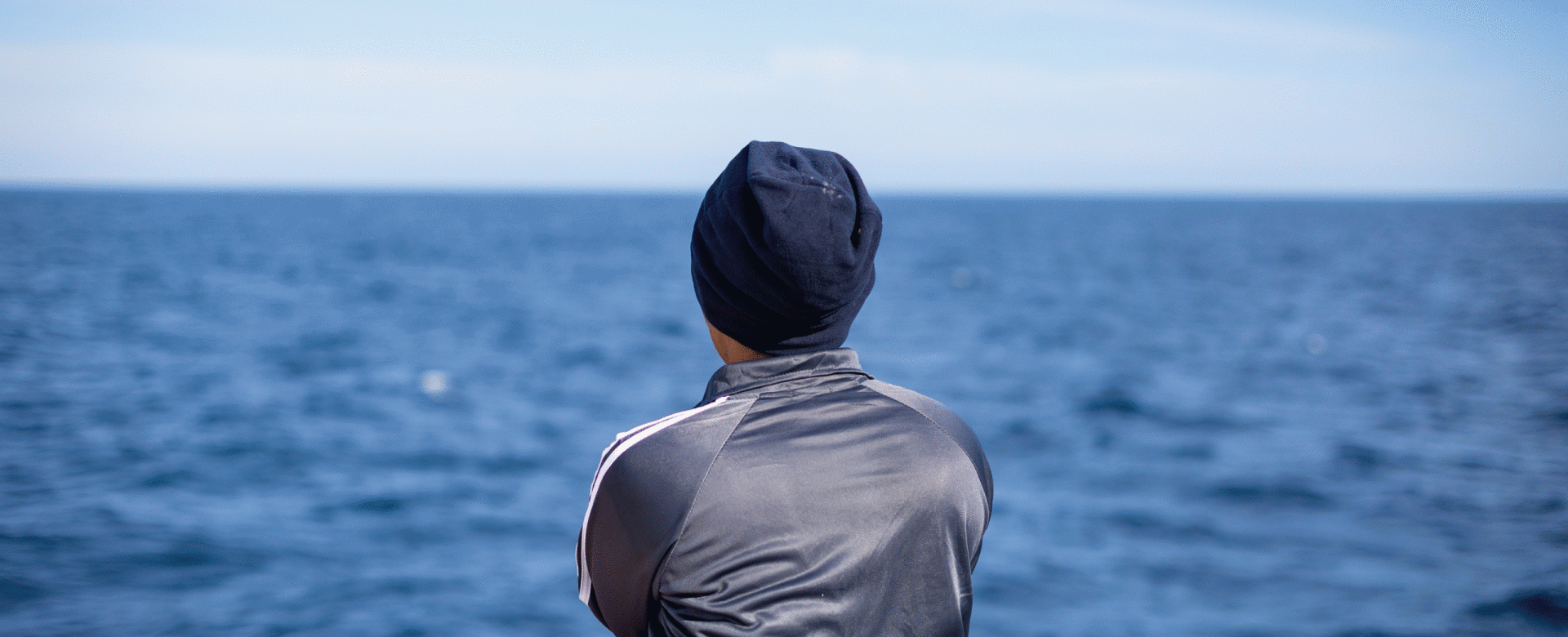
Juba, 20, and Hassama, 13, are brothers who were rescued on April 7th, 2024, by the Ocean Viking teams on board a wooden boat in the Libyan Search and Rescue Region. Originally from the Delta Valley in Egypt, they shared the difficult living conditions and lack of prospect for the future in Egypt that led them to leave for Libya, risking their lives in the attempt to cross the Mediterranean.
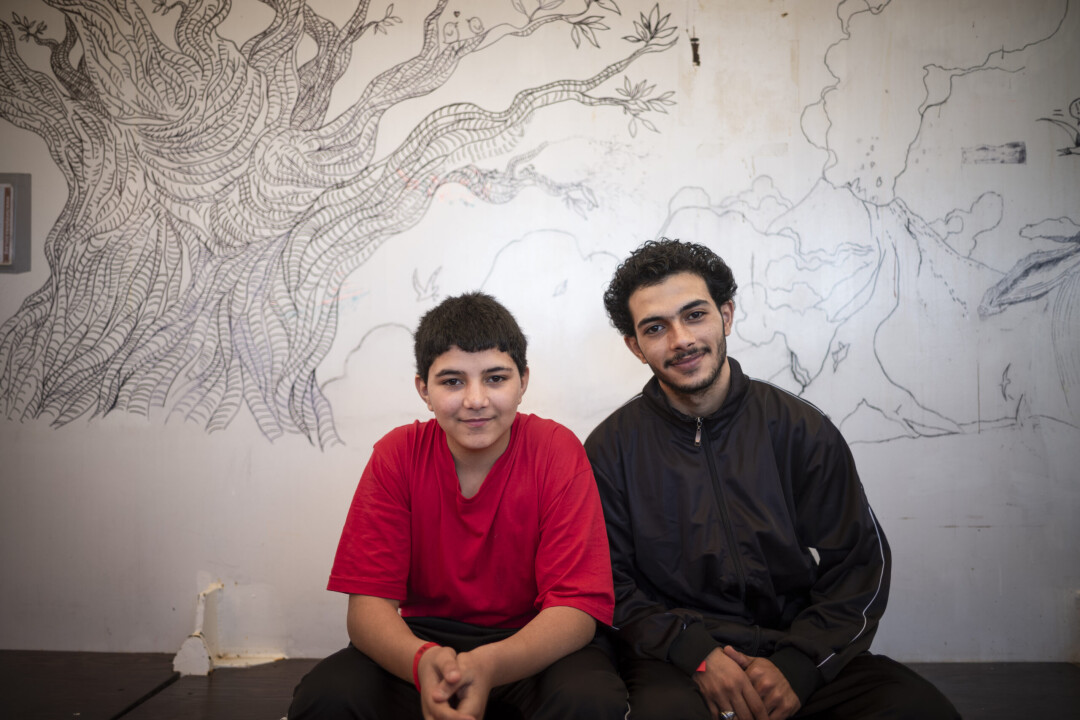
Reasons for leaving
Juba: I’m here with my 13-year-old brother, Hassama, the youngest in our family. I’m 20. I’m the eldest. We come from a small town, Samannud, in the Delta Valley. We come from a very poor family; my parents have a lot of debt. My father and mother sell vegetables on the street. I went to school, but I’ve been working since I was 8. We have another younger brother, but we decided that he would stay with our parents to help them. I feel responsible for our situation, I want to get us out of our misery, to have another future. I had the idea of leaving back in 2012 when I saw several people around me who were leaving for Europe to help their families.
It was the first time my little brother had tried to make the crossing, but I’ve tried several times myself.
Hassama: It was I who wanted to leave with my brother, to help him.
I tried the first time two years ago, when I was 18. Twice I crossed the border from Egypt to Libya in the mountains to the north. One time, at the border, the Libyan border guards fired in my direction.
Interception and prison
Juba: The first time I crossed was in 2022. There were around sixty of us in a wooden boat. We were intercepted by the Libyan coastguard, who fired on our boat, and it capsized. Around thirty people drowned. I was intercepted by the Libyan Coast Guard and imprisoned for 9 months. I was transferred to four different detention centres, including Ain Zara prison.
In prisons in general it was very difficult: there was no light. They took away my clothes and beat me with sticks. I had to work every day, washing toilets, cars, taking out the rubbish. All under their armed guard.
It was dirty, there were lots of insects, the food was bad. One person died of exhaustion. I was mentally very tired. I lost a lot of weight. Sometimes they were throwing water on us to punish us, and a lot of us got sick.
In Tariq Al-Seka prison the treatments were less bad. The treatment was better when because NGOs were visiting us. As soon as they left, the guards would take everything we had, blankets and so on. I lost a lot of weight and was covered in insect bites. If we rebelled, they tortured us. I thought about my parents and worried about them.
After prison, I was repatriated from Libya to Egypt. Thousands of Egyptians were repatriated at that time.
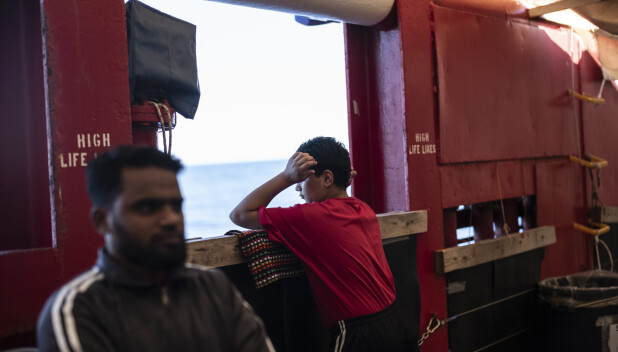

Departure
Juba: My brother and I made a passport and flew from Egypt to Benghazi in Libya in November 2023. Our passage was organized from Egypt and cost $11,000 for two, or almost 500,000 Egyptian pounds. Initially, we had agreed on a different price: 400,000 Egyptian pounds. Once there, the smuggler demanded more from my father. He threatened to kill us if he didn’t pay. My parents got into debt with a friend so that we could pay more.
When we arrived in Libya, someone was waiting for us and we left for Tripoli and were placed in a warehouse in Zwara, where we stayed for five months. The conditions were horrible. The water was bad. For five months we ate nothing but pasta and rice. There were between 180 and 200 of us, piled on top of each other. All that time, we were locked in, unable to leave, without even seeing the light of day. We could leave if we wanted to, but the smuggler wouldn’t give us our money back. For the first month, we were kept in a shed, and our phones were taken away to prevent us from taking photos or giving out information such as our whereabouts.
The Mediterranean Sea
The day of departure was decided by the smuggler. It was impossible for us to know the date in advance. After five months, the smuggler arrived and took my brother and me, as we were the oldest people in the place. We took a car, and he gathered us in a place on Friday evening, and the next day we left. We were crammed into a truck and covered with a tarpaulin to keep us well hidden.
When we set sail, there were a lot of waves, and it was dark. One of the two engines broke down. My brother and I were really scared, but we kept hoping. I told myself we deserved a better life. There was a Nigerian man next to me, and he was scared too. I took his hand to try and reassure him.
Hamassa: I’d put a garbage bag over me to protect me from the waves. I was so scared; I thought we were going to die. When I saw that little line on the horizon: the Ocean Viking in the distance. I waved and screamed! When I saw her coming towards us, I was so relieved.
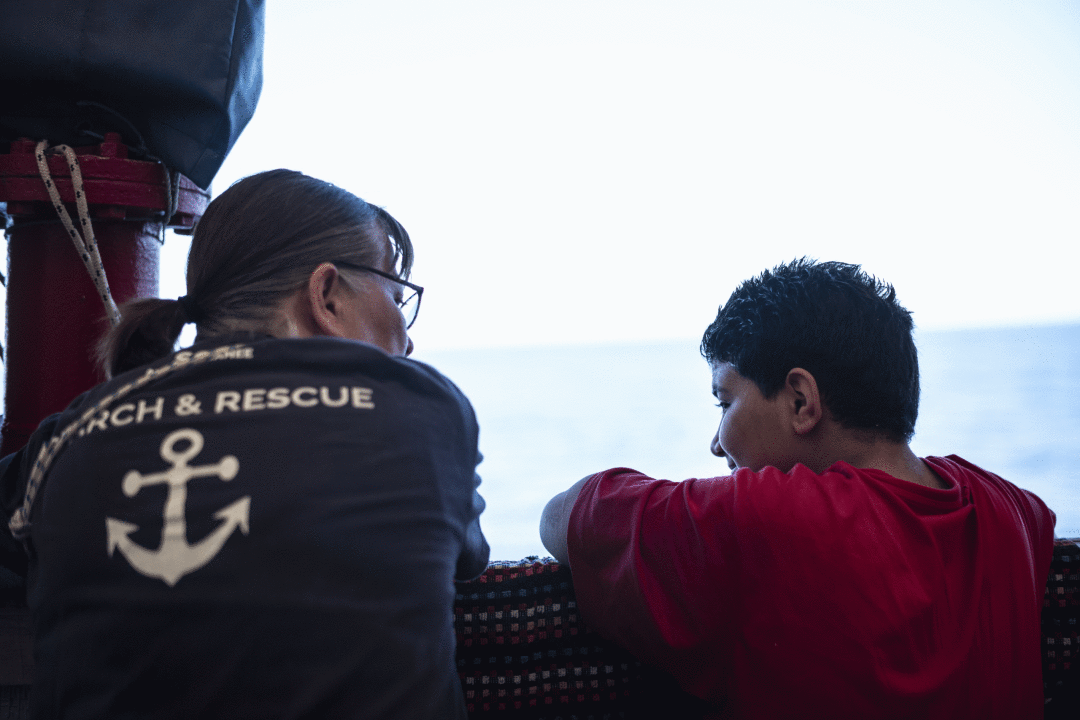
On board:
Juba: I feel responsible because my mother got sick because she was so stressed about us. Now that I’m safe on board the Ocean Viking, I feel like I can breathe. I’ve learned a lot about life, and I hope the future will be better. As soon as I can, I’ll talk about what’s happening in Libya.
Hamassa: My mind is calmer now too.

